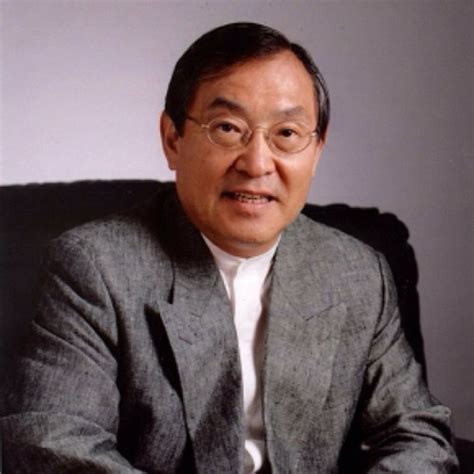A Quote by Kenichi Ohmae
The strategist's method is very simply to challenge the prevailing assumptions with a single question: Why?
Quote Topics
Related Quotes
We have a tendency to make assumptions about everything! The problem with making assumptions is that we believe they are truth. We could swear they are real. We make assumptions about what others are doing or thinking-we take it personally-then we blame them and react by sending emotional poison in our word. That is why whenever we make assumptions, we're asking for problems. We make assumptions, we misunderstand, we take it personally, and we end up creating a whole big drama for nothing.
Putin is not a strategist at all. He has brilliant tactics, but he is a very bad strategist overall. And I think he is acting very opportunistically there, just to play the cards with America. He was very proud of himself when he convinced us to give up on chemical weapons so that it could be played down and prevent an invasion, and that was very helpful for Obama because Obama saved his face and didn't order airstrikes at that very moment. Putin was extremely proud. That's the kind of thing Putin does.
It's the most annoying question and they just can't help asking you. You'll be asked it at family gatherings, weddings, and on first dates. And you'll ask yourself far too often. It's the question that has no good answer. It's the question that when people stop asking it, you'll feel even worse. - WHY ARE YOU SINGLE?
When one forgets the distinction between method and truth, one becomes foolishly prone to respond to any question that cannot be answered from the vantage of one's particular methodological perch by dismissing it as nonsensical, or by issuing a promissory note guaranteeing a solution to the problem at some juncture in the remote future, or by simply distorting the question into one that looks like the kind one really can answer after all.
The anonymity issue is a big question. As long as people can disguise cyber attacks and as long as there is a sort of question mark over who is responsible, then the problem will continue to exist. And of course what happens in response to that is that there is a move to try and refashion the Internet so that anonymity is impossible, which of course leads to fears among all sorts of groups - civil rights groups, NGOs, and political parties - that the Internet is going to be used simply as a method of control. So these are very sensitive issues.
A mood of constructive criticism being upon me, I propose forthwith that the method of choosing legislators now prevailing in the United States be abandoned and that the method used in choosing juries be substituted. That is to say, I propose that the men who make our laws be chosen by chance and against will of all the rest of us, as now.



































